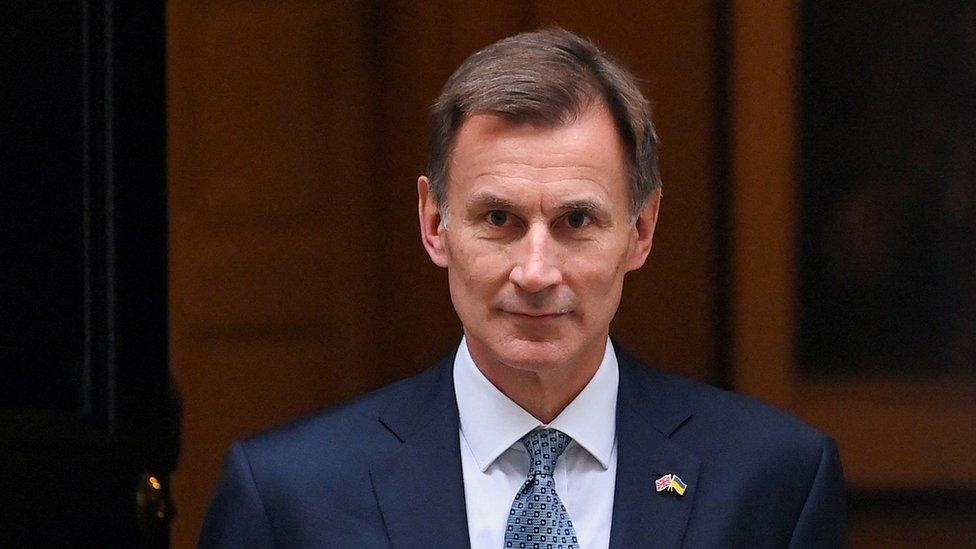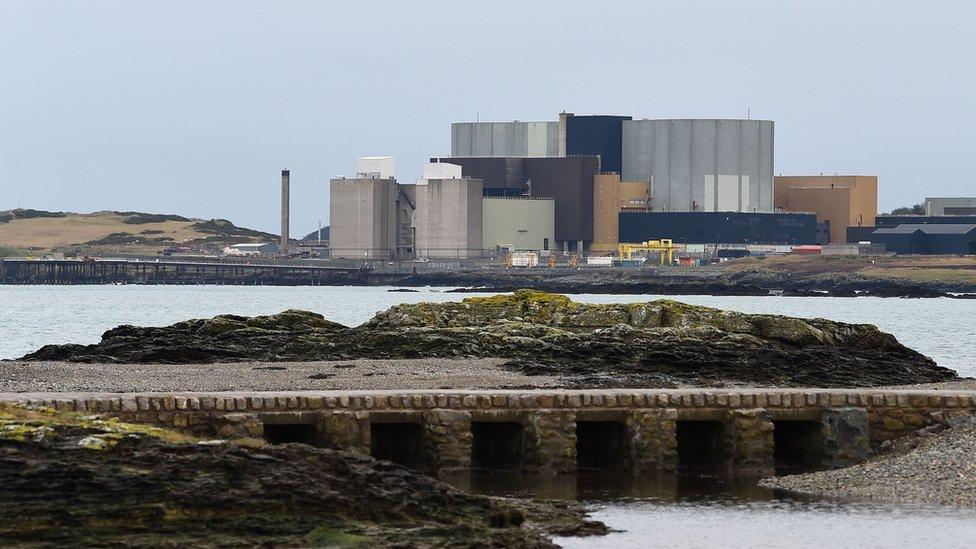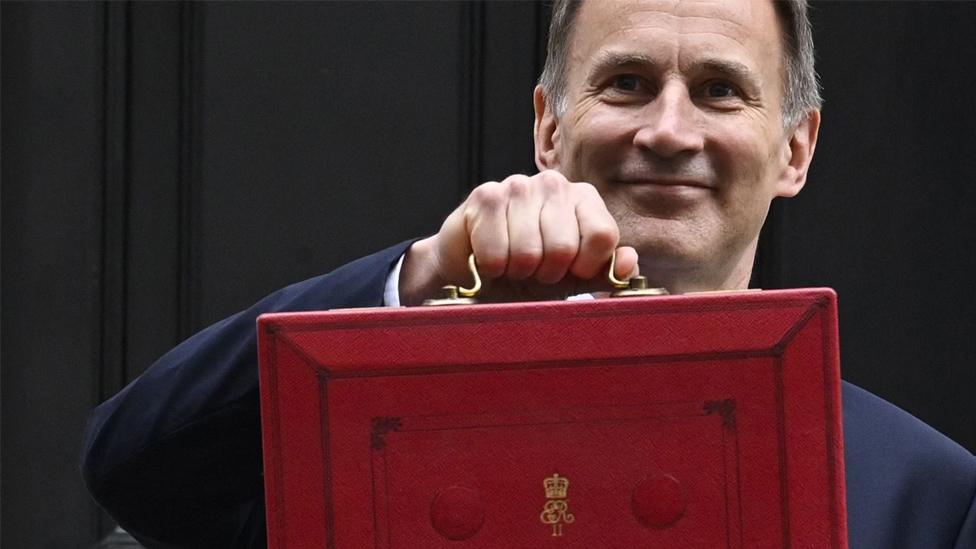Budget 2023: Five things to look out for in Wales
- Published

Chancellor Jeremy Hunt will present his tax and spending plans to MPs
Chancellor Jeremy Hunt will present his tax and spending plans to MPs in the House of Commons on Wednesday.
Always a key moment in the political calendar, it will face particular scrutiny this year over how it might help with the squeeze on incomes from a continuing cost of living crisis.
But what might the Budget mean for Wales?
Here are five things to look out for.
Energy support

The UK government has announced it will extend the Energy Price Guarantee at current levels - £2,500 - for a further three months.
It had been due to rise to £3,000 on 1 April.
David Phillips, associate director at the Institute for Fiscal Studies think tank, said the energy price cap was important to Wales for two reasons.
"First, homes in Wales are, on average, less energy-efficient than in the rest of the UK, in part because they were often built many years ago.
"Second, the lower average incomes in Wales mean energy bills take up a larger share of households' income than in more affluent parts of the UK."
Most households have been getting a one-off £400 discount on their fuel bills between October 2022 and March 2023, paid in monthly instalments, but there are no signs of that support being repeated.
Plaid Cymru has called on Mr Hunt to provide more support for homes and businesses relying on heating oil or liquefied petroleum gas.
Childcare and changes to benefits

Helping to get parents back to work is going to be a big part of the Government's push to grow the economy, with the Treasury confirming it will extend the offer of 30 hours of free childcare for children aged one to four in England.
Eligibility requires parents to earn at least £152 per week, but those who have an expected 'adjusted net income' of more than £100,000 will not qualify.
It is likely to be an expensive policy, which as a devolved matter will mean more money for Wales. But it will be up to the Welsh government to decide what to do with the extra funding.
Welsh ministers said they would be "carefully analysing the impact of the UK Spring Budget on our finances, and any consequential funding would be allocated in line with our priorities for Wales in the normal way."
As it stands, only working parents of three and four-year-olds currently receive 30 hours free childcare in Wales, while some two-year-olds from the most deprived parts of Wales receive 12.5 hours for free under the Flying Start Scheme.
The Budget is also likely to include an announcement that families on universal credit will receive childcare costs upfront rather than having to claim it back.
Some 290,000 people in Wales are on universal credit, according to the latest figures from the Department of Work and Pensions.
Citizens Advice Cymru welcomed the move and said it would help remove financial stress.
This is being called the "back to work" budget, and there will also be more of an expectation placed on benefit claimants to look for work or increase their hours.
Some people could also be asked to attend more meetings with a work coach.
The chancellor is also set to outline plans to scrap the scrap the work capability assessment (WCA).
Simon Hatch, director of Citizens Advice Cymru, said the WCA had "long been a source of pain and delay in the benefits system".
But changes must be accompanied by "a package of support to enable people to work rather than sanctioning those who are trying their best to get by during a cost of living crisis," he added.
Public sector spending

The Welsh government has called for increased funding for public services.
Finance Minister Rebecca Evans said: "The chancellor should use this opportunity to increase public spending to ensure public sector workers are paid a fair wage and services are able to respond to post-Covid pandemic pressures and the cost of living crisis."
If the UK government announces extra funding to improve pay awards for teachers and NHS workers in England then that would mean additional money for the Welsh government.
UK ministers continue to speak to trade unions to try to resolve industrial action in England, but have said the kind of wage rises being asked for are "unaffordable".
Fuel duty

The chancellor is under pressure to keep the fuel duty freeze.
Welsh Conservative Senedd leader Andrew RT Davies told the BBC Politics Wales programme that it would be " very foolish to do anything other".
It is also a key request from the Federation of Small Businesses in Wales, which said firms reporting a rise in business expenses have told them fuel is one of the main contributors.
Nuclear investment

Wylfa, on Anglesey, has been identified as a potential site for a new nuclear project
We know that Jeremy Hunt is looking to boost nuclear power as part of his plans for a "clean energy reset".
He is expected to confirm the next steps for Great British Nuclear (GBN).
That is the body due to be set up to oversee the delivery of new power plants to meet the aim for nuclear to provide 25% of electricity by 2050. A key question is how much funding GBN gets.
A competition to build small nuclear plants in the UK - so-called small modular reactors (SMRs) - has also been pledged.
Earlier this month, Welsh Affairs Committee chairman Stephen Crabb urged Prime Minister Rishi Sunak to end "uncertainty" over whether a new nuclear power station will be built at Wylfa, on Anglesey.
The UK government had identified Wylfa as a potential site for a new nuclear project. But in a letter to the PM, Mr Crabb highlighted concerns over "a loss of momentum".

THE BESTEST BITS: A little bit more of what you like from Wynne Evans

Related topics
- Published16 March 2023

- Published14 March 2023

- Published1 March 2024
